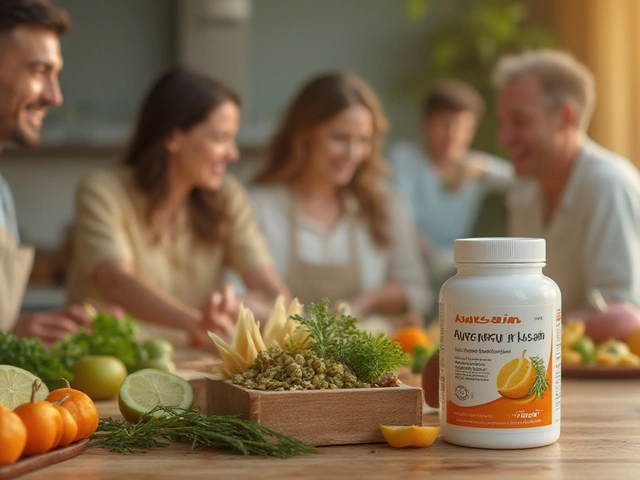Immune Support: Simple Ways to Strengthen Your Body’s Defenses
Feeling run down? Your immune system might be asking for help. The good news is you don’t need a magic pill – a few everyday changes can make a big difference. Below you’ll find easy habits, foods, and supplements that work together to keep your defenses on point.
Everyday Habits that Keep Your Immune System Strong
First, aim for at least seven hours of sleep each night. Sleep is when your body repairs cells and makes the proteins that fight infection. If you’re a night owl, try moving bedtime earlier by 15 minutes each week until you hit the sweet spot.
Next, get moving. Moderate exercise, like a brisk walk or a bike ride, lifts blood flow and helps immune cells patrol the body. You don’t have to run a marathon – 30 minutes most days does the trick.
Stress is another silent immune saboteur. When you’re stressed, cortisol rises and can keep white blood cells from doing their job. Simple stress‑busting tricks—deep breathing, a short meditation, or just stepping outside for fresh air—can lower cortisol quickly.
Hydration matters too. Water carries nutrients to every cell and flushes out toxins. A good rule is to sip water throughout the day rather than gulping a big glass only when you’re thirsty.
Supplements and Foods that Give Your Immunity a Boost
Now let’s talk food. Vitamin C is a classic immune helper, and you can get plenty from oranges, bell peppers, and broccoli. Pair vitamin C with a source of iron (like spinach) to improve absorption.
Zinc supports the activity of immune cells. Meat, pumpkin seeds, and lentils are solid zinc sources. If you’re vegetarian, a daily zinc supplement can fill the gap.
One lesser‑known player is piperine, the active compound in white pepper. Studies show piperine can increase the bioavailability of other nutrients, meaning your body uses them more efficiently. Sprinkle a pinch of white pepper on soups or stir‑fries for a subtle boost.
Magnesium, CoQ10, and omega‑3 fatty acids also play roles in immune regulation. A magnesium‑rich snack (nuts or banana) and a fish‑oil capsule can support the system, especially if you take a beta‑blocker like metoprolol which can affect heart‑related immunity.
When you consider supplements, start low and watch for reactions. A daily multivitamin that covers vitamins A, C, D, and E can be a safe baseline. If you’re unsure, talk to a pharmacist or your doctor before adding anything new.
Finally, remember that no single food or pill makes you invincible. The best immune support comes from a balanced routine: sleep, movement, stress control, hydration, and a varied diet. Stick to these basics, and you’ll give your body the tools it needs to fend off bugs and stay energetic.
July 2, 2025
Alyssa Penford
15 Comments
Discover how Goa Powder can naturally boost your energy, strengthen your immune system, and improve whole-body wellness with research-backed benefits and simple tips.





